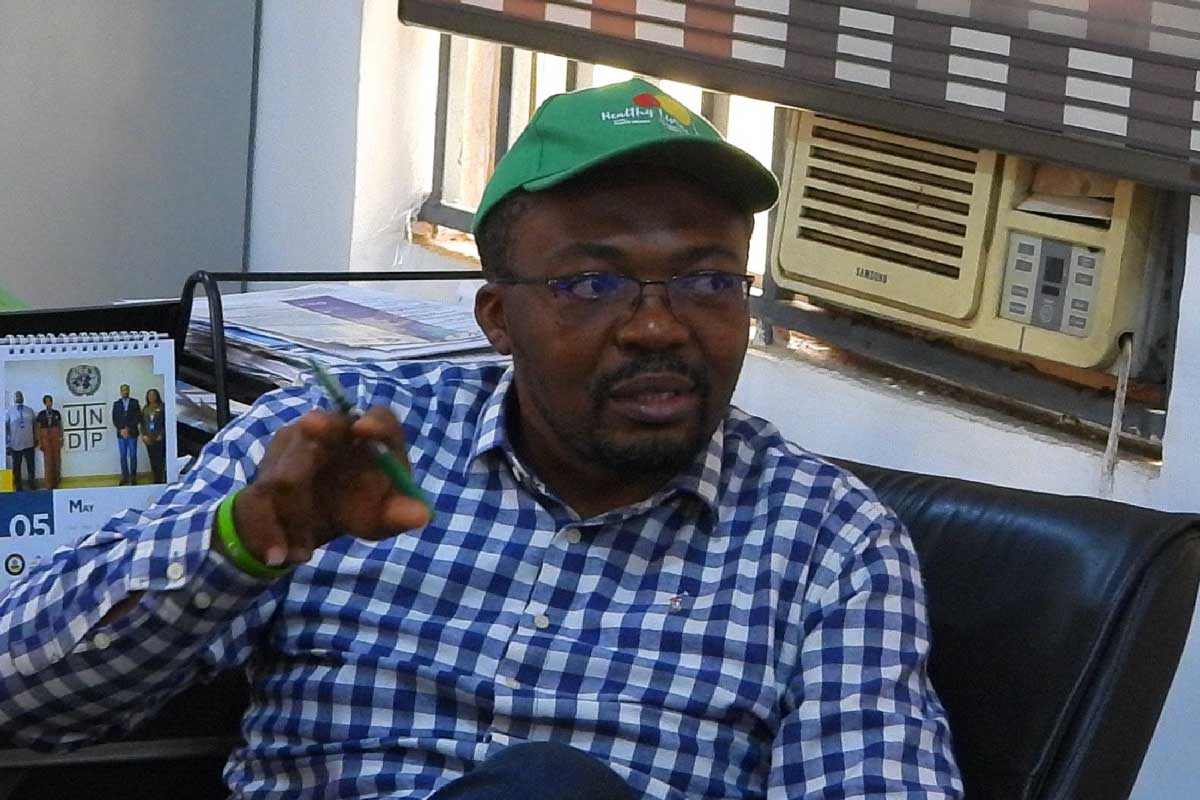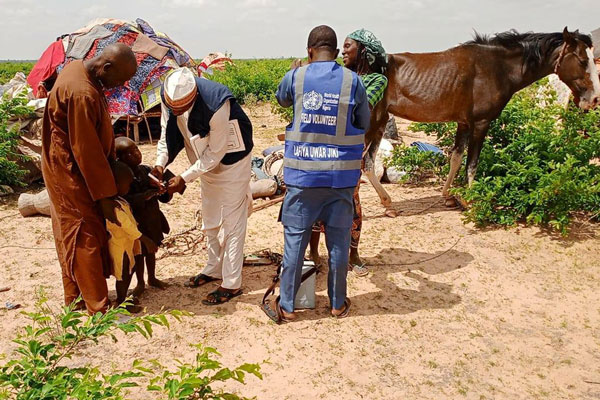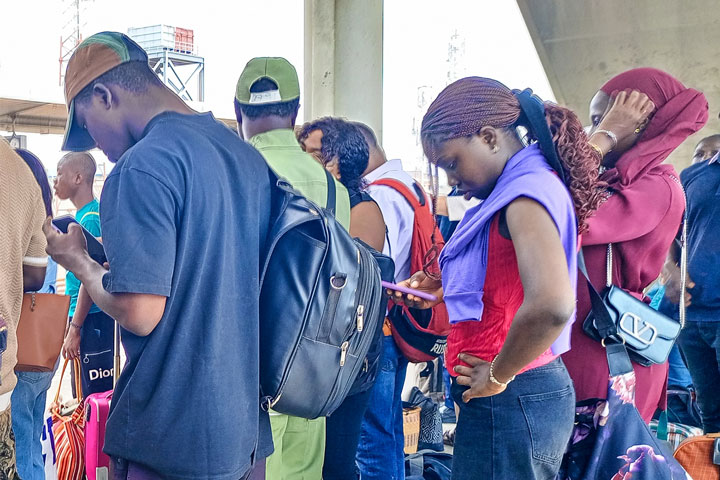How a Nigerian IDP town learned to keep cholera at bay
Once terrified by a “strange disease”, the displaced people residing in Gubio town in Borno State, Nigeria, have learned that cholera can be controlled.
- 29 August 2025
- 6 min read
- by Jesusegun Alagbe
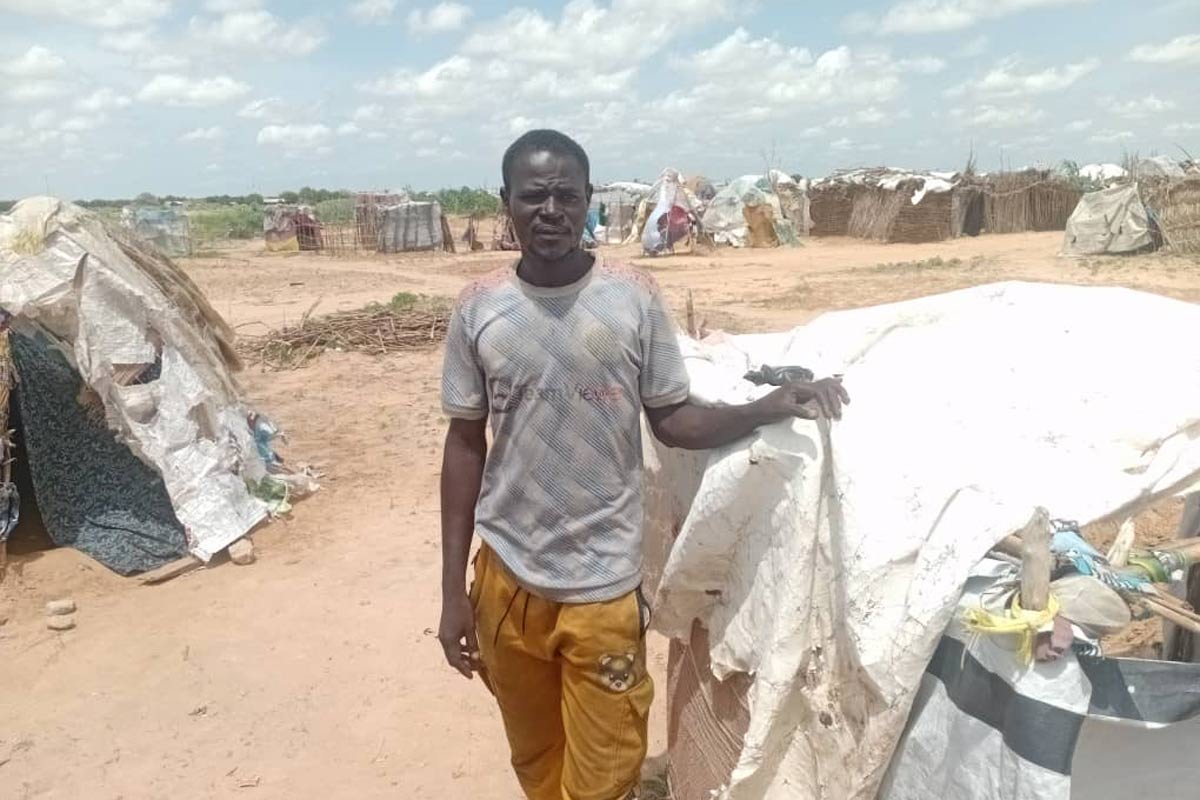
Muhammed Matthew won’t easily forget the chaos of August 2017, when a cholera outbreak swept through internally displaced persons (IDP) camps across Borno State, Nigeria. In crowded Gubio town, where he and his family sought refuge from Boko Haram, the threat of the disease terrified him.
To Matthew, the waterborne bacterium, brutal and quick, was an alarming mystery: a “strange disease” that had “come to take our lives”. He recalls praying to God for an end to the epidemic.
“There was great panic because we didn’t know what to do,” he remembers. “People were falling sick and dying, among them children. I know some loved ones who passed away during that time. The clinic was crowded with people who were sick.”
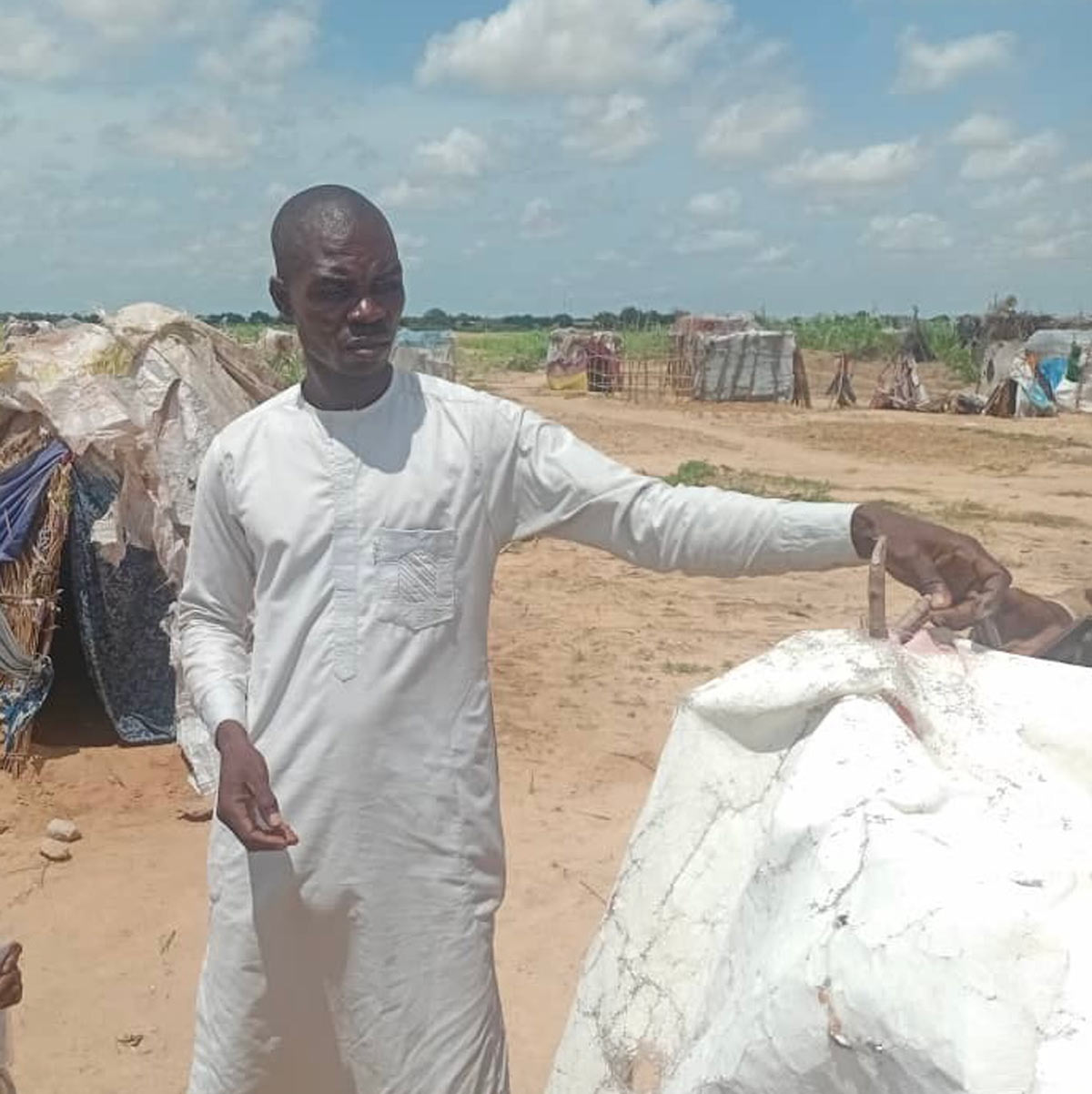
Changing the fight
The outbreak spread fast across Gubio, Jere, Monguno, Dikwa and Mafa local government areas, as well as in Maiduguri municipality: all places that had been roiled by violence and large-scale displacement. Cholera seemed to be chasing disaster.
More than 5,300 suspected cases were reported, with 61 deaths, according to the United Nations Children’s Fund (UNICEF). Overcrowding in the camps and inadequate sanitation were identified as key factors contributing to the outbreak.
A month after the outbreak started, Gavi, the Vaccine Alliance and partners sent 915,000 doses of oral cholera vaccine (OCV) to Nigeria to help halt the spread of the disease.
“These lifesaving vaccines will play a vital role in slowing the spread of the disease, buying valuable time to put the right water, sanitation and hygiene infrastructure in place to stop the root causes of this outbreak,” said Dr Seth Berkley, then-CEO of Gavi, the Vaccine Alliance, as the OCV doses were delivered.
That September, the first round of the OCV vaccination campaign was conducted in the epidemic hotspots, reaching over 896,000 people. In December, a second round of vaccination was carried out.
By 21 December, two weeks had passed with no new cases: the five-month outbreak was declared successfully contained.
Matthew, a father of 11 children, said he ensured that his children were all vaccinated when health workers brought the OCVs to the Gubio IDP camp in 2017. “I believed that the vaccine would keep them safe, and I encouraged many parents then to do likewise,” he told VaccinesWork.
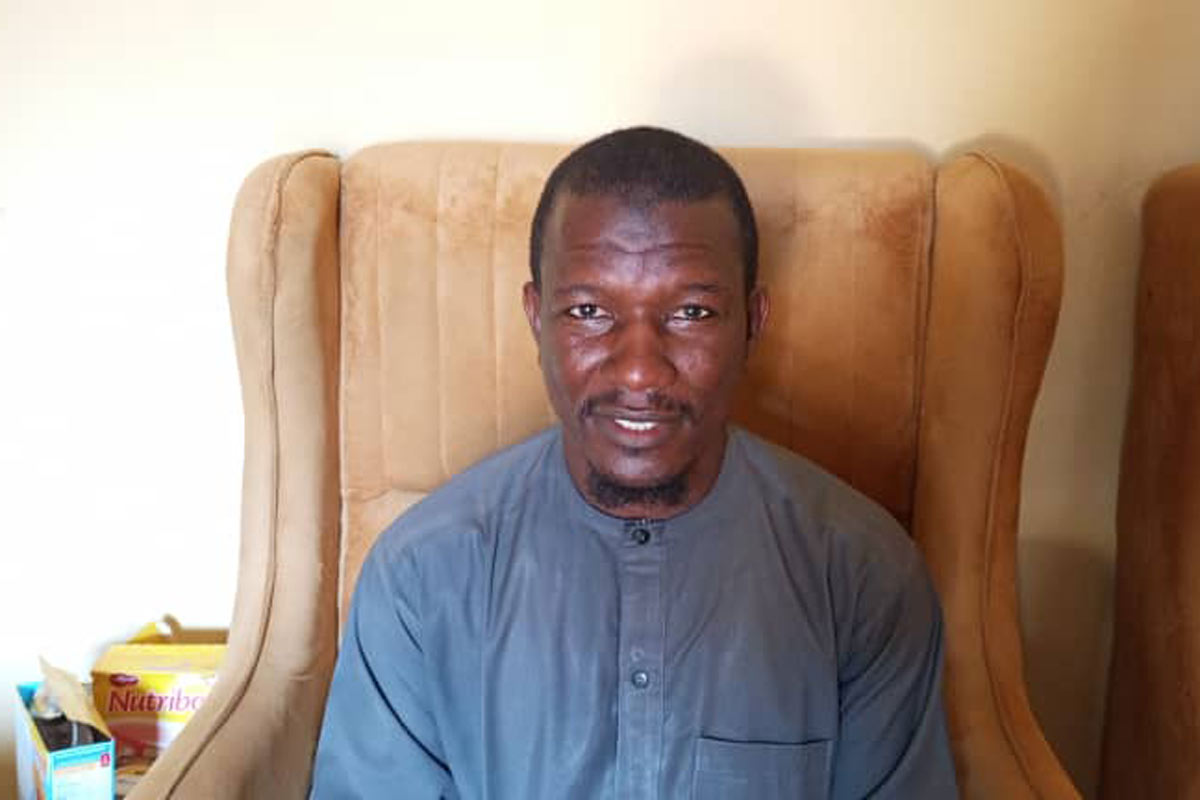
When cholera struck again
In 2024, seven years later, the disease was back. By 22 October, around 2,000 suspected cases had been recorded in Borno, including three deaths. Gubio IDP camp alone had seen 600 cases. The outbreak was linked to flooding, which contaminated water sources and aided the spread of the disease.
But this time, the town was ready and informed. Thanks to years of multiple campaigns on preventing cholera and prompt deployment of OCVs, the outbreak was quickly contained, sparing Gubio from the devastation of 2017.
“Since 2017, we have not only protected our children, but we have also been taught preventive measures like handwashing before and after using the toilet, avoiding open defecation, washing fruits and vegetables properly, and informing the officials promptly when someone is noticed to be displaying cholera symptoms. I don’t joke with these measures in order to protect myself, neighbours, and relatives from getting the disease,” Matthew said.
Indeed, the OCVs and other preventive measures like personal hygiene and good sanitation were a game-changer in fighting the second cholera outbreak in Gubio, as well as other parts of Borno, says Mohammed Audu Malgwi, the Deputy Epidemiologist at the Borno State Ministry of Health.
“In both 2017 and 2024, I worked at cholera treatment centres. My experience is that in 2017, there was a large casualty because there was no vaccine on the ground, and there was not much awareness. It was that year that the OCV was newly introduced. But by 2024, there had been much awareness and thousands of people had been vaccinated. Fortunately, many people are adhering to our messages of vaccination and personal hygiene, which were important in the fight against the second outbreak,” he told VaccinesWork.
Malgwi encouraged the people of Borno State, especially those still in overcrowded IDP camps, to continue to attend carefully to personal hygiene and environmental sanitation to guard against future cholera outbreaks.
“To be truthful, we cannot prevent cholera disease totally, but we can prevent an outbreak. I would say that the first preventive measure is the vaccine. When people are vaccinated, the severity of the outbreak will be less. Second, proper environmental sanitation helps a lot. People should clean their environment at all times and also improve their hygiene. They also need to learn proper waste management. For those still at IDP camps, they need to keep adhering to the sanitation rules. Cholera is a serious disease, and we must all play our part in fighting it,” he said.
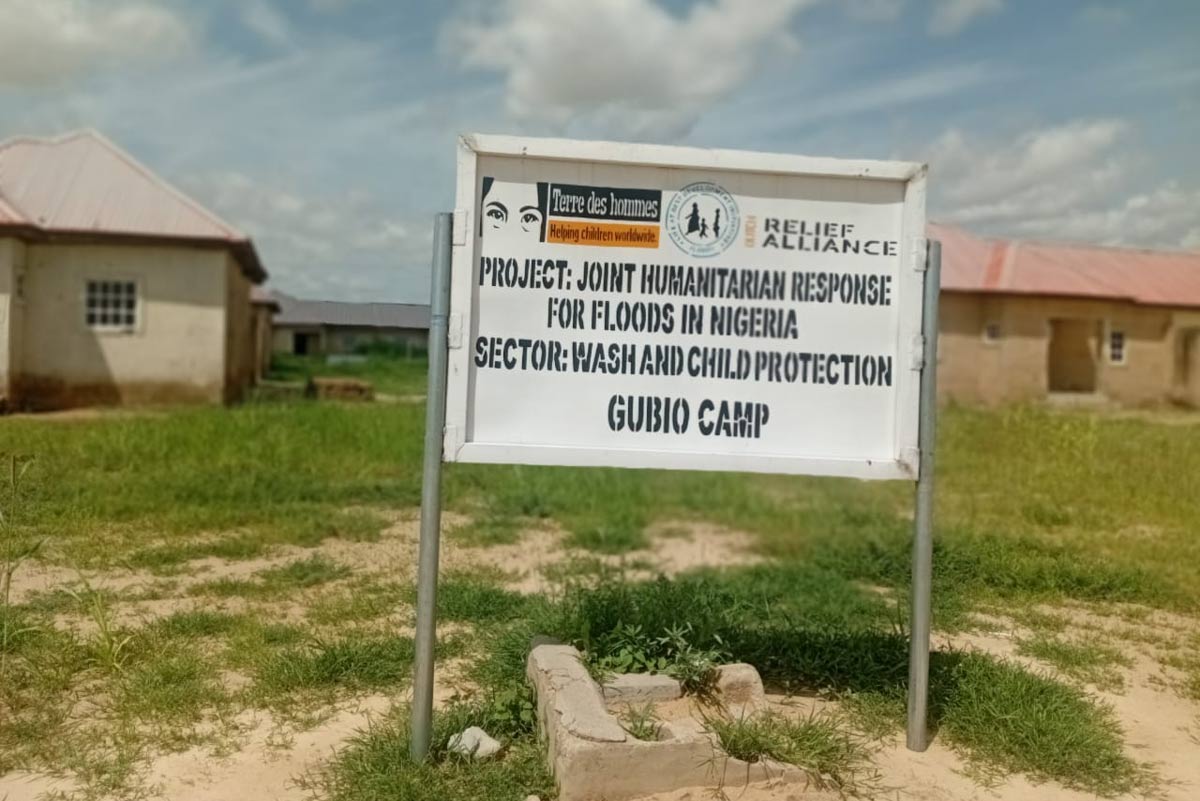
No more fear
At the Gubio IDP camp, Adamu Garba, a camp resident, said residents are no longer afraid of cholera – not because the disease had disappeared, but because the vaccines had given them a sense of safety they never felt before.
“Gubio IDP camp sometimes experiences cholera incidents, but we know we are safe because of the vaccines. Over the years, no one has died or fallen severely ill because we all know better now. I, for one, have vaccinated all my children, so I know they are protected,” Garba, a 41-year-old father of four, said.
Maryam Usman, a 55-year-old mother of seven children, said that when the 2017 outbreak occurred, she lived in panic all through the period – every cough or fever in her children felt like a death sentence waiting to happen. But today, she said the fear has faded, replaced by the reassurance that the cholera vaccine has brought to her family and community.
“Today, I take proper hygiene seriously because we have been enlightened that it helps to protect against future occurrences,” she said.
Have you read?
Tightening control
To prepare the majority of the people of Gubio for any future cholera outbreaks, health workers like Usman Abubakar said they are still working on increasing the population’s understanding of disease prevention, of which vaccination is one part.
“We go from house to house and street to street,” Abubakar said. “In 2017, there was a massive cholera outbreak due to factors like crowded population, poor personal hygiene, and unsafe water. The people were not aware of what to do, which made the mortality rate high. Today, we are preaching to the people – especially those in IDP camps – to drink safe water and maintain proper environmental sanitation and personal hygiene.”
In a July 2025 report, UNICEF categorised Nigeria as having the second-highest number of cases of cholera outbreak in West and Central Africa. The organisation stressed that cholera remains endemic in Nigeria, with the country experiencing recurrent major outbreaks in recent years. As of the end of June 2025, Nigeria recorded 3,109 suspected cholera cases and 86 deaths across 34 states.
Bothered by the country’s recurring cholera outbreaks, Dr Jide Idris, the Director General of the Nigeria Centre for Disease Control and Prevention (NCDC), recently issued a public health advisory, tagged “Stop Cholera.” He appealed to state governments to prioritise action for solutions that ensure access to and use of safe water, basic sanitation, and proper hygiene practices in communities.

